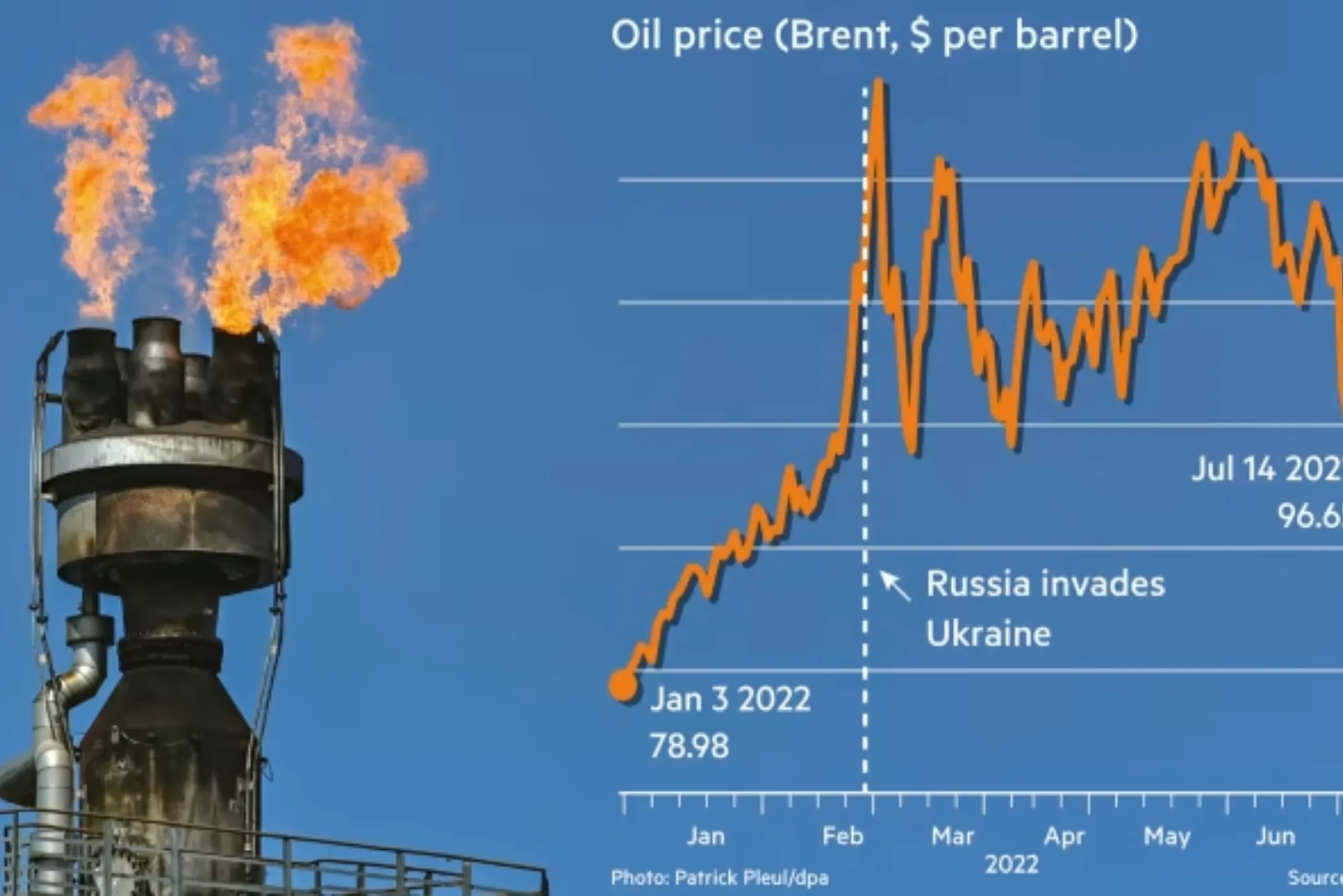The global energy market depends heavily on crude oil prices, and Brent Crude Oil Prices play a pivotal role in shaping economies, influencing industries, and determining energy costs. In this detailed guide, we will explore the importance of oil price Brent, factors affecting its fluctuations, and how it compares to other benchmarks like WTI (West Texas Intermediate). We’ll also touch on how businesses and investors use these prices to make informed decisions.
What is Brent Crude Oil
Brent Crude Oil is one of the leading global benchmarks for crude oil pricing. Extracted from the North Sea, Brent is light and sweet, making it easier to refine into valuable products such as gasoline and diesel. Its prominence as a benchmark arises from its wide use in pricing over two-thirds of the world’s internationally traded crude oil supplies.
Why is Brent Crude Important
The significance of Brent Crude Oil Prices extends beyond the oil industry. From transportation and manufacturing to everyday consumers, fluctuations in oil price Brent directly influence the cost of goods, services, and economic growth. For instance, rising prices can increase fuel costs, affecting logistics and inflation, while declining prices can relieve financial pressure on consumers and businesses.
Key Factors Influencing Oil Price Brent
Understanding the dynamics of Brent Crude Oil Prices requires a closer look at the factors that drive price changes:
Supply and Demand
The fundamental rule of economics—supply and demand—is a primary driver of oil price Brent. When supply exceeds demand, prices drop, and when demand outpaces supply, prices rise. Seasonal variations, economic growth, and technological advancements often affect this balance.
Geopolitical Events
Geopolitical instability, particularly in oil-producing regions, can lead to disruptions in supply, causing Brent Crude Oil Prices to spike. Examples include conflicts in the Middle East, sanctions on major producers, and blockades of shipping routes.
OPEC Policies
The Organization of the Petroleum Exporting Countries (OPEC) plays a critical role in influencing oil price Brent. Through production quotas and policy decisions, OPEC members can affect global oil supply and consequently the price of Brent crude.
Currency Exchange Rates
Since crude oil is priced in US dollars, fluctuations in the dollar’s value can impact Brent Crude Oil Prices. A weaker dollar makes oil cheaper for buyers using other currencies, potentially increasing demand and pushing prices higher.
Technological and Market Trends
Advancements in extraction techniques, such as hydraulic fracturing (fracking), and shifts towards renewable energy sources can impact oil price Brent by altering the demand for traditional crude oil.
Market Speculation
Financial markets and speculative trading also influence Brent Crude Oil Prices. Traders often react to news, forecasts, and other indicators, driving prices up or down even before physical supply and demand changes occur.
Comparison: Brent Crude vs. WTI
While Brent Crude Oil Prices are a global benchmark, WTI (West Texas Intermediate) is another prominent oil pricing standard. Here’s how they differ:
- Location: Brent is sourced from the North Sea, while WTI comes from the United States.
- Quality: Brent is slightly heavier and less sweet compared to WTI, making WTI easier to refine.
- Market Reach: Brent’s broader market influence makes it the preferred benchmark for international trade, whereas WTI is primarily used in the U.S.
- Price Differentials: Historically, oil price Brent tends to be slightly higher than WTI due to logistical and production cost differences.
Impact of Brent Crude Oil Prices on the Global Economy
Fluctuations in Brent Crude Oil Prices have far-reaching consequences for countries, industries, and individuals. Here are some key impacts:
Economic Growth
Oil-exporting nations benefit from high oil price Brent, as it boosts revenue and strengthens their economies. Conversely, importing countries often face higher costs, which can slow economic growth.
Energy Costs
The cost of electricity, heating, and transportation fuels often correlates with Brent Crude Oil Prices. Industries reliant on these resources experience significant cost variations as prices fluctuate.
Inflation and Consumer Prices
Rising oil price Brent can contribute to inflation, as increased production and transportation costs get passed down to consumers in the form of higher prices for goods and services.
Investment Decisions
For investors, Brent Crude Oil Prices serve as a critical indicator of energy sector performance. Rising prices often boost the value of oil stocks and related commodities, while declining prices may indicate a slowdown in the industry.
Monitoring Brent Crude Oil Prices

Staying informed about oil price Brent trends is essential for businesses, investors, and policymakers. Here are some effective ways to monitor these prices:Financial News Platforms: Websites like Bloomberg, Reuters, and CNBC provide real-time updates on Brent Crude Oil Prices.Trading Platforms: Many trading apps and platforms offer live tracking of crude oil prices for investors.Industry Reports: Regular updates from OPEC, the International Energy Agency (IEA), and other organizations provide valuable insights.Market Analysis: Professional analyses and forecasts can help stakeholders anticipate future trends in oil price Brent.
Future of Brent Crude Oil Prices
The future of Brent Crude Oil Prices is influenced by several ongoing trends, including:
- Energy Transition: The global shift towards renewable energy and reduced reliance on fossil fuels may decrease demand for Brent crude over time.
- Technological Advancements: Innovations in oil extraction and refining could alter supply dynamics and influence pricing.
- Geopolitical Developments: Ongoing tensions and policy changes in oil-producing regions will continue to affect supply stability.
- Environmental Policies: Stricter environmental regulations may impact production costs and limit output, affecting oil price Brent.
How Brent Crude Impacts the Transportation Sector
Transportation heavily relies on oil-based fuels such as diesel and gasoline. Changes in Brent Crude Oil Prices directly influence fuel costs, impacting logistics companies, airlines, and public transportation systems. Higher fuel costs can lead to increased ticket prices, surcharges, and reduced profit margins for transport-dependent businesses.
Freight and Shipping Costs
Global trade relies on shipping, which consumes substantial amounts of fuel. As Brent Crude Oil Prices rise, so do freight costs, affecting the price of imported goods. Conversely, lower prices can reduce shipping expenses, offering economic relief.
Air Travel and Tourism
The aviation industry is another major consumer of fuel derived from crude oil. Fluctuating Brent Crude Oil Prices can alter airfare prices, influencing consumer travel behavior and the profitability of airlines.
Role of Brent Crude in Renewable Energy Transition
As the world shifts towards greener energy, the role of Brent Crude Oil Prices in shaping this transition becomes apparent. High oil prices often accelerate investment in alternative energy sources, making renewables more competitive. However, declining oil prices can slow the transition by reducing the economic incentive to adopt renewable energy technologies.
Impact on Electric Vehicles (EVs)
Electric vehicles (EVs) offer a sustainable alternative to traditional internal combustion engine vehicles. When Brent Crude Oil Prices are high, EV adoption often sees a surge as consumers seek cost-effective and environmentally friendly transportation options.
Energy Sector Diversification
Oil-dependent economies are increasingly investing in renewable energy projects to mitigate the risks associated with fluctuating Brent Crude Oil Prices. Diversification reduces economic vulnerability and ensures long-term sustainability.
Brent Crude in Financial Markets
Brent Crude Oil Prices hold significant weight in financial markets. Oil futures contracts, options, and other derivatives based on Brent prices attract investors worldwide. These instruments allow traders to speculate on future price movements, hedge against risks, and manage exposure to volatile markets.
Correlation with Stock Markets
Oil price Brent trends often correlate with stock market performance, particularly in energy sectors. Rising oil prices can boost energy stock valuations, while declining prices may signal reduced profitability for oil-dependent industries.
Commodities Trading
Brent Crude is a staple in commodities trading, offering investors opportunities to diversify portfolios and leverage price volatility for financial gain.
Understanding Brent Crude Oil Prices is vital for grasping the complexities of the global energy market. From supply and demand dynamics to geopolitical factors, numerous elements influence oil price Brent, affecting economies, industries, and individuals worldwide. By monitoring trends and staying informed, stakeholders can navigate the challenges and opportunities presented by fluctuating prices, ensuring resilience and strategic decision-making in an ever-changing landscape.
Expanding knowledge about Brent Crude Oil Prices empowers businesses, investors, and policymakers to make informed choices in an interconnected and dynamic global economy. As the energy landscape continues to evolve, Brent Crude remains a cornerstone of the market, bridging the past and future of energy resources.
Theresa Roemer’s net worth and Henry Ruggs’ net worth are often topics of interest due to their achievements in different fields. Theresa Roemer, a successful entrepreneur, author, and philanthropist, has amassed significant wealth through her ventures, including luxury goods and real estate. On the other hand, Henry Ruggs, known for his career in professional football, gained recognition for his talent and speed on the field. While the specific figures for Theresa Roemer’s net worth and Henry Ruggs’ net worth may vary, their financial success highlights the impact of their respective careers.









